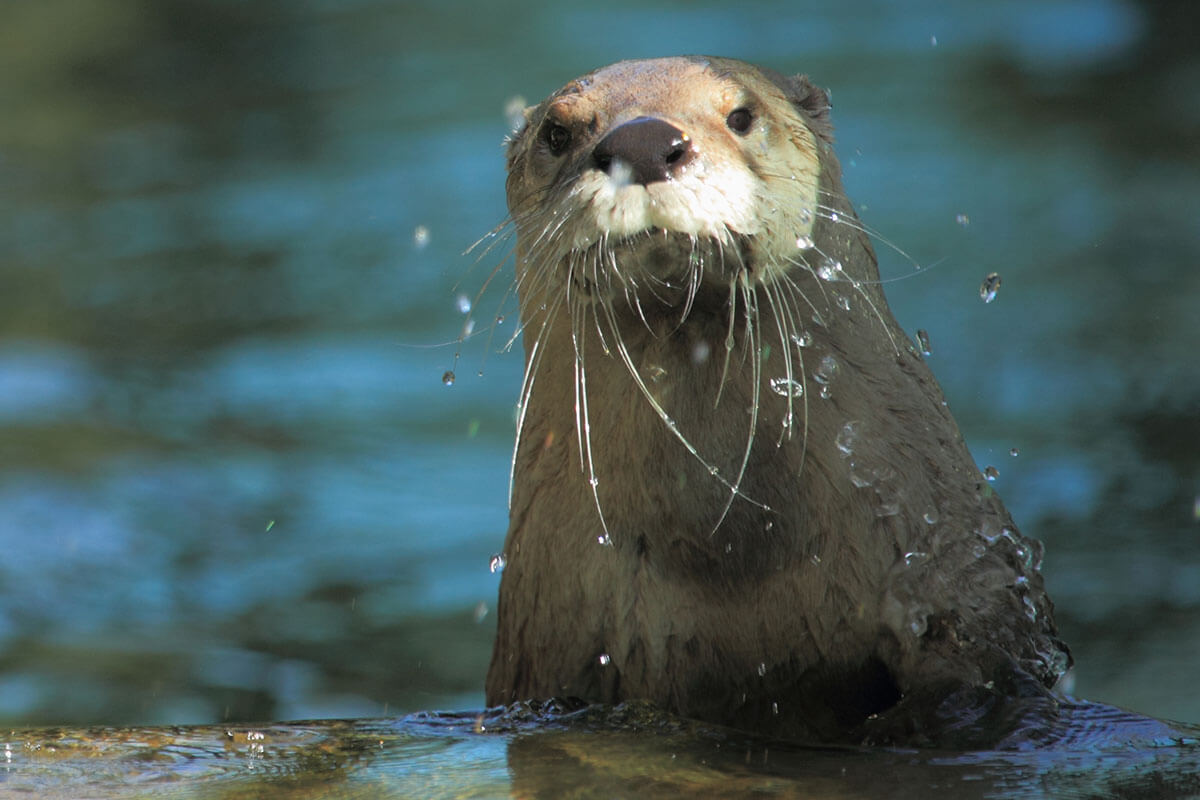North American River Otters

Otters have long, slim bodies and relatively short limbs. Their most striking features are the powerful webbed feet used to swim, and their seal-like abilities holding breath underwater. Most have sharp claws on their feet and all except the sea otter have long, muscular tails. They have very soft, insulated underfur, which is protected by an outer layer of long guard hairs. This traps a layer of air that keeps them dry, warm and somewhat buoyant under water.
For most otters, fish is the staple of their diet. This is often supplemented by frogs, crayfish and crabs. Some otters are expert at opening shellfish, and others will feed on available small mammals or birds. Prey-dependence leaves otters very vulnerable to prey depletion.
Otters are active hunters, chasing prey in the water or searching the beds of rivers, lakes or the seas. Most species live beside water, but river otters usually enter it only to hunt or travel, otherwise spending much of their time on land to avoid their fur becoming waterlogged.
Otters are playful animals and appear to engage in various behaviors for sheer enjoyment, such as making waterslides and then sliding on them into the water. They may also find and play with small stones. Different species very in their social structure, with some being largely solitary, while others live in sometimes fairly large groups.
Source: en.wikipedia.org/wiki/Otter
